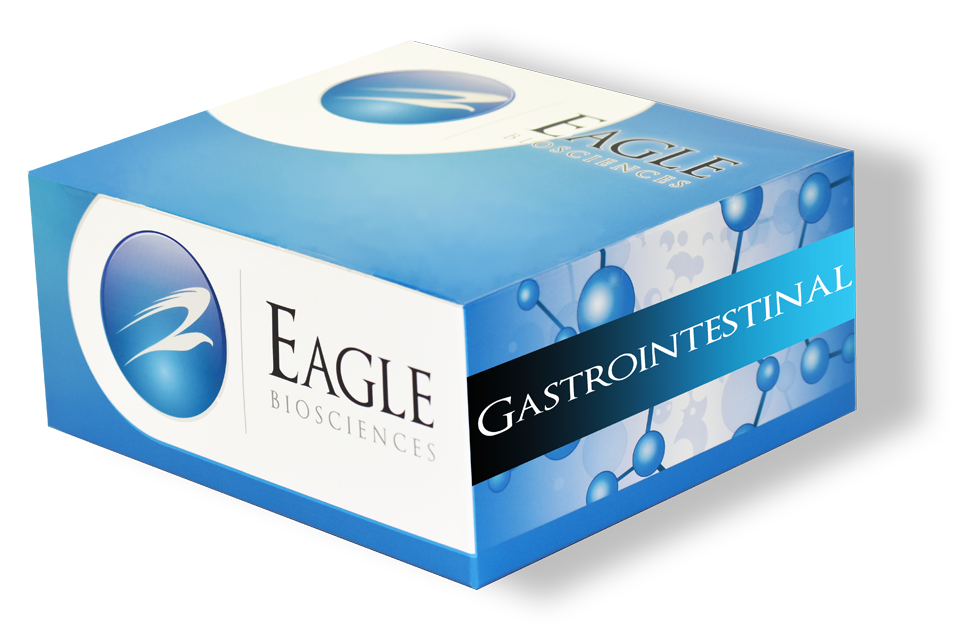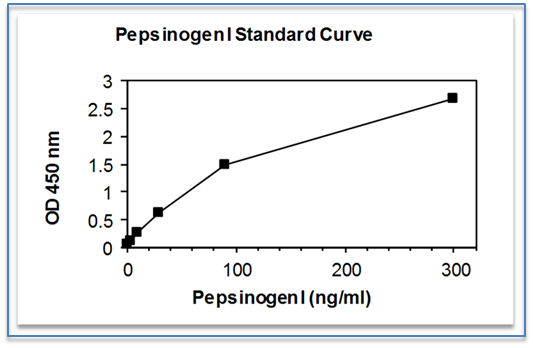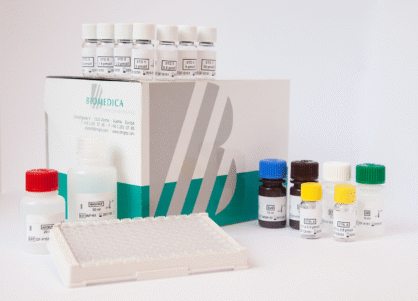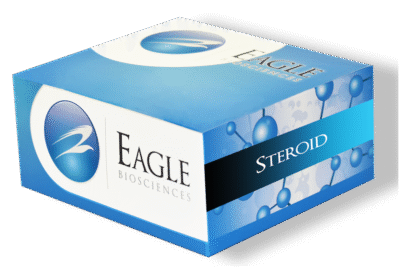Pepsinogen I ELISA Kit
Pepsinogen I (PGI) is a proenzyme secreted by the chief cells of the gastric fundus and body, and it plays a key role in the digestive process as a precursor to the enzyme pepsin. In healthy individuals, PGI is secreted into the gastric lumen and a small amount enters the bloodstream, making it measurable in serum. Serum Pepsinogen I levels serve as a non-invasive biomarker for gastric mucosal integrity, particularly of the acid-secreting regions of the stomach. Low PGI levels—or a low PGI/PGII ratio—are strongly associated with atrophic gastritis, a precursor condition to gastric cancer.
In research, PGI serves as a surrogate marker in studies investigating the natural history of gastric atrophy, the impact of Helicobacter pylori eradication, and dietary or environmental risk factors for gastric disease. Its utility in both predictive diagnostics and epidemiological surveillance makes PGI a valuable biomarker in gastroenterology.
This Pepsinogen I ELISA Kit is manufactured in USA by Eagle Biosciences.
| Size | |
| Sensitivity | 0.1 ng/mL |
| Dynamic Range | 3 – 300 ng/mL |
| Incubation Time | 1.5 hours |
| Sample Type | Serum |
| Storage | 2-8°C |
| Alternative Names | PGI, PG I, Pepsinogen Type I, Pepsinogen A, Zymogen of Pepsin A |





